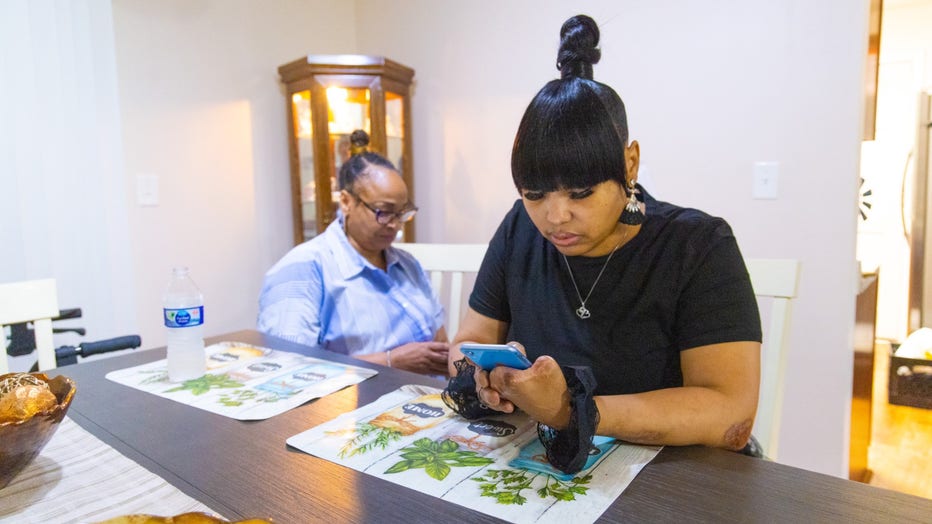Infection
Atlanta mother of three says flesh-eating bacterial infection made her a quadruple amputee
Mom survives flesh-eating bacterial infection
Kiyahki Bivins is a mother of three who has had to fight for her life. She said she spent three months in Peidmont Hospital after mysteriously contracting a flesh-eating bacterial infection. Eventually, the sickness caused her to lose limbs and fingers. She tells the FOX 5 Medical Team she’s finally ready to move forward with her life.
“If you’re not born with a disability, and you go into it, it’s a whirlwind,” the Atlanta 43-year-old says.
In early June 2022, Bivins was raising three kids, two of them teenagers, and working as a private caregiver. While out with friends one night, she says she started feeling sick.
“Just fatigued, tired,” Bivins says. “I went home, laid down, told the kids, ‘I am not feeling too good.'”
“I got up, and I could barely walk,” she says.
About 36 hours, she realized she was in serious trouble.
Rushed by ambulance to Piedmont Atlanta Hospital, Bivins was now critically ill.
Piedmont foot surgeon and wound specialist Dr. Richard Kaufman was part of the Piedmont surgical team that would spend the next three months fighting to save her.
Rushed into emergency surgery to try to stop it from progression, doctors discovered Bivins had contracted a Group B Strep infection.
Bivins says she had not been swimming in any lakes or rivers, and she does not remember cutting or nicking her skin.
Now, she had necrotizing fasciitis, a “flesh-eating” bacterial infection, that was spreading up her leg.
“Those things really, really get you sick really, really, really fast,” Dr. Kaufman says.
“When I woke up, my hands and my feet were gangrened,” she says.
“Unfortunately, I’ve seen this happen before,” Kaufman says. “But, it’s kind of like a give or take. You give them these medications that literally save their lives. But as a result, it’s a little bit too much for the body to handle.”
But by August, Bivins says her surgeon told her they would have to amputate her feet and lower legs.
A few weeks later, surgeons removed part of both of her hands.

43-year-old Kiyahki Bivins survived a harrowing bacterial infection that left the Atlanta mother of 3 a quadruple amputee.
It’s been 13 months since Bivins came home from Piedmont.
She has been fitted with prosthetics, but says she is still trying to get her insurance company to cover rehabilitation therapy to learn how to use them.
“I’ll get back to least the 80 to 90%, once I get this therapy under my belt,” Bivins says. “Being an amputee won’t stop me from doing the things that I used to do.”
She is also grateful, she says, for her Piedmont Healthcare team who helped save her life.
“I always wanted to give back, and so telling my story is one part of it, to let people know, whatever it is that you’re going through, you can get through it,” Bivins says.

